Struggling to fill skilled roles with local candidates? A UK Skilled Worker Sponsorship Licence allows your business to hire top international talent legally — helping you grow, innovate, and stay ahead in your industry.
Whether you’re an employer ready to hire or a worker looking to help your employer become a sponsor, this guide will help you take the next step.
A Sponsorship Licence is permission granted by the UK Home Office to an organisation, such as a university, college, or employer, allowing them to sponsor foreign nationals — including students and workers — to come to the UK under specific visa categories.
For students, the institution must have a Student Sponsorship Licence to issue a CAS (Confirmation of Acceptance for Studies), which is necessary for a Student Visa application.
For workers, businesses must have a Worker Sponsorship Licence to issue Certificates of Sponsorship (CoS) needed for Skilled Worker visas and other employment routes.
Recognised higher education providers, such as universities, colleges, or independent schools.
The organisation must meet strict educational quality standards.
They must prove they are genuine, financially stable, and capable of fulfilling immigration compliance duties.
UK-based businesses or organisations that:
Are legally operating in the UK.
Have no history of immigration law violations.
Can prove a genuine need to sponsor non-UK workers.
Have suitable systems in place to monitor sponsored employees.
Issue CAS (for students) or CoS (for workers) accurately.
Report to the Home Office about changes (e.g., students dropping out, employees missing work).
Maintain compliance records (attendance, contact details, etc.).
Failure to comply can result in the licence being suspended or revoked, preventing the organisation from sponsoring new individuals.
Complete Sponsorship Licence application preparation
HR system compliance and audit checks
Guidance on choosing job codes and salary levels
Post-licence support along with regular compliance monitoring
Our experienced UK Sponsor Licence Solicitors based in London have deep understanding of the Sponsor Licence Regulations and the immigration rules. We work with you to get your Sponsorship Licence along with Compliance visit preparation and mock audits for a seamless and well prepared application process.
The Sponsor Licence issued by UK Visas and Immigration (UKVI), represents a formal endorsement of the particular organisation’s suitability to sponsor and support migrants, ensuring compliance with immigration laws and regulations. To apply for a Sponsor Licence, an organisation must meet specific criteria and demonstrate its commitment to fulfilling various responsibilities. Having a Sponsor Licence obliges organisations to maintain meticulous records and comply with immigration rules. This ensures that migrants under their sponsorship have the right to work or study in the UK, safeguarding against potential legal issues.
It is important to understand that not all roles are eligible for sponsorship. For example, under the skilled worker sponsor licence, all candidates must meet certain requirements. Sponsoring businesses must pay at least the minimum salary for the relevant role. The exact minimum salary depends on the role and the ‘going rate’. It also depends on other factors such as the candidate’s experience level, age or qualifications.
Acquiring and maintaining a Sponsor Licence comes with its challenges. Organisations must be diligent in fulfilling their sponsorship duties and obligations, including but not limited to record-keeping, monitoring migrants’ activities, and promptly reporting any changes or issues to UKVI. Failure to do so can result in licence suspension or revocation.
The sponsor licence application process is strict, and keeping your licence requires committing to a rigorous compliance regime. This involves ensuring that your HR processes and procedures run smoothly and effectively in accordance with the Home Office’s requirements

These audits are conducted to assess an employer’s adherence to immigration laws and regulations, ensuring that they are hiring and managing their workforce in a manner that is consistent with legal requirements.
Employers in the UK have a legal obligation to ensure that their workforce complies with immigration laws. Failing to do so can result in severe penalties, including fines, loss of a Sponsor Licence (if applicable), and even criminal charges.
The UKVI officers may examine an employer’s records, including proof of employees’ right to work in the UK, such as visas and residence permits. They assess whether the employer is fulfilling its sponsorship duties, such as reporting changes in employee circumstances and ensuring compliance with sponsorship conditions.
Employers are often evaluated on their level of understanding and training regarding immigration compliance. Ensuring that relevant staff are knowledgeable about the rules and regulations is essential.
Compliance audits can be rigorous and demanding for employers. Mistakes or oversights in documentation or practices can lead to legal consequences, including fines and the potential loss of the ability to sponsor foreign workers.
LegumLex Solicitors provide assistance with any UK immigration compliance matter, including providing regular mock audits and training.



COPYRIGHT 2025 © LegumLex Solicitors - ALL RIGHTS RESERVED